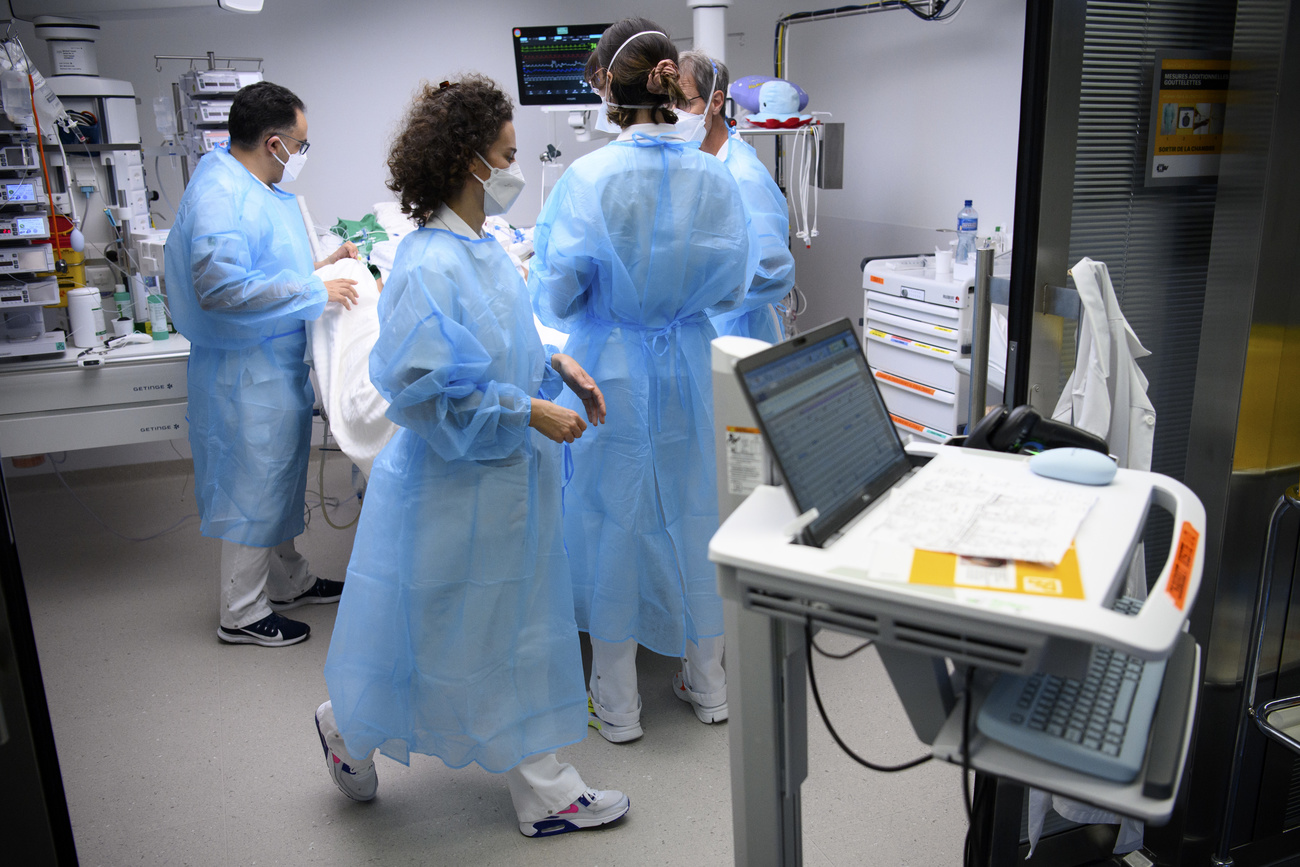Labour shortage remains acute in Switzerland

The shortage of qualified personnel persists in Switzerland. In a tight employment market jobs in the healthcare, IT and engineering sectors remain hard to fill, according to Zurich-based human resources provider Adecco.
After jumping by 69% in 2022, the labour shortage index for Switzerland has risen by a further 24% this year, according to data from Adecco Switzerland and the University of Zurich’s Swiss Labour Market Monitor, published on Tuesday.
Two factors are put forward to explain this persistence. “On the one hand, the number of jobseekers has fallen sharply,” with the unemployment rate falling to 2% last October. “On the other hand, the number of job vacancies rose by 7% compared with the previous year,” according to the press release.
Sectors geared towards domestic demand, such as hotels and restaurants, “have been able to rely heavily on solid domestic demand” and are still forecasting job creation despite the economic slowdown. Conversely, export-oriented sectors are struggling in the face of falling global demand.
+ Swiss unemployment rate drops below 2%
Marcel Keller, director of Adecco Switzerland, said: “Although the mixed economic outlook for the coming year and the visible decline in the dynamics of the labour shortage index point to a phase of easing in the short and medium term, companies will continue to face a long-term shortage” of qualified resources in Switzerland.
He also noted that “the ageing of the population, increasing digitalisation and the transition to a green economy will continue to fuel this trend in the future”.
More widespread shortages
The jobs most in demand are in healthcare (nurses, endocrinologists and pharmacists), IT (developers, software and applications analysts, SAP consultants) and engineering (mechanical engineering technicians, heating planners). Adecco notes, however, that there has been some easing in the IT sector, with a sharp rise in the number of jobseekers in this field in September.
The shortage was more marked in German-speaking Switzerland (28%) than in French-speaking Switzerland (14%). The former region saw a more marked fall in the number of people looking for work (-16%) and a moderate increase in the number of vacancies (8%) over the year.
In contrast, French-speaking Switzerland recorded a more moderate fall in the number of jobseekers (-10%) and an increase of just 3% in vacancies over the year. The labour market has therefore developed “much more dynamically” in German-speaking Switzerland than on the other side of the linguistic divide.
The study stresses that the shortage of staff “is tending to turn into a general labour shortage”, even in sectors with “an oversupply of qualified staff” and “requiring fewer qualifications, such as auxiliary staff”.
Adecco believes that companies need to “make better use of the domestic labour market”, by investing in training and further education, bringing in people undergoing professional reorientation, relaxing working conditions or recruiting temporary staff, said Martin Meyer, head of German-speaking Switzerland at Adecco, who also advocates considering foreign labour.
This news story has been written and carefully fact-checked by an external editorial team. At SWI swissinfo.ch we select the most relevant news for an international audience and use automatic translation tools such as DeepL to translate it into English. Providing you with automatically translated news gives us the time to write more in-depth articles. You can find them here.
If you want to know more about how we work, have a look here, and if you have feedback on this news story please write to english@swissinfo.ch.

In compliance with the JTI standards
More: SWI swissinfo.ch certified by the Journalism Trust Initiative


















You can find an overview of ongoing debates with our journalists here . Please join us!
If you want to start a conversation about a topic raised in this article or want to report factual errors, email us at english@swissinfo.ch.